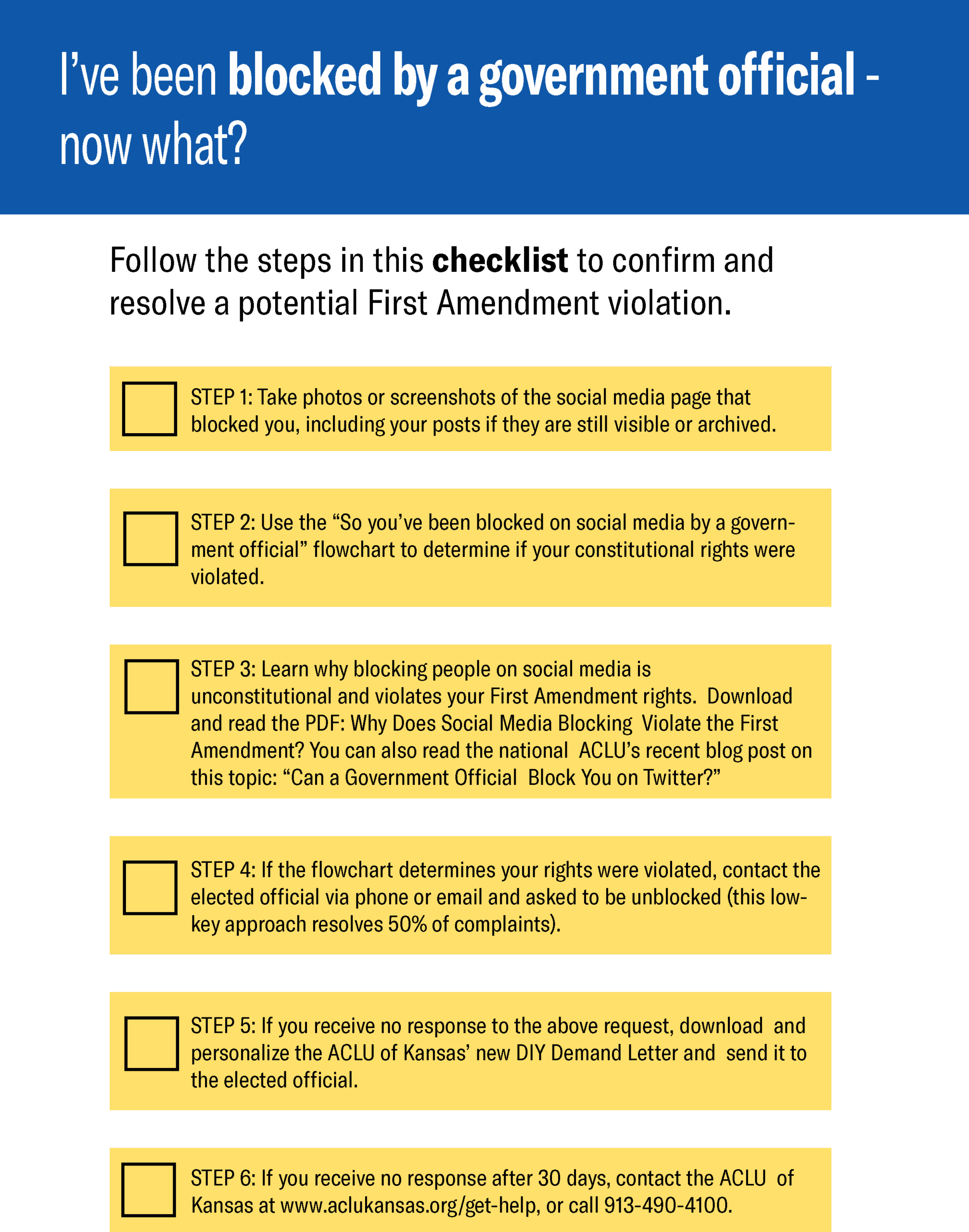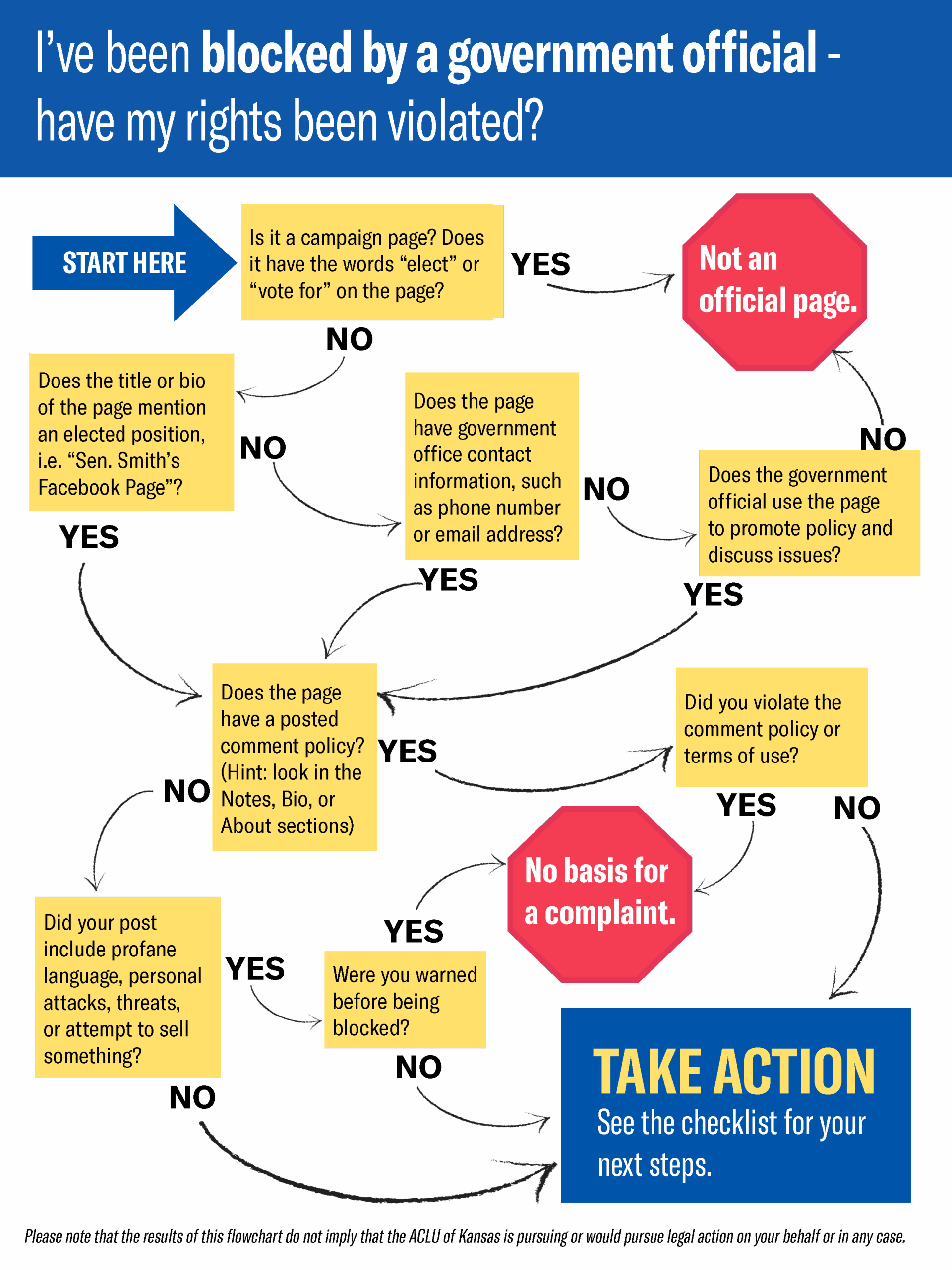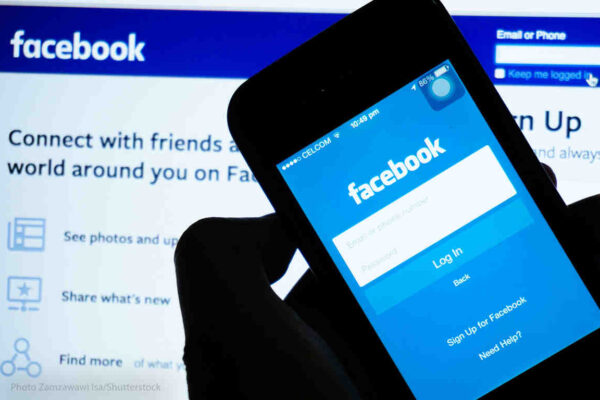Blocked by an elected official on social media? This toolkit will help you learn why blocking can violate the First Amendment - use the checklist below to get started and the flowchart to determine if your rights have been violated - then download our DIY letters to take action.

Why Does Social Media Blocking Violate the First Amendment?
The ACLU of Kansas believes that official social media pages for elected representatives and government organizations are public forums, and that blocking individuals from these pages can be an unconstitutional restriction on their right to free speech under the First Amendment.
Why does the First Amendment apply to social media pages?
The Constitution’s limits on government control of speech apply online as much as they do in newspapers, at marches, and in townhall meetings. In fact, the discussion at an old-fashioned townhall is similar to the discourse found on a social media page. Because it is unconstitutional for an elected representative to block critics from entering a public townhall simply because of their views, it’s also not allowable for that representative to create a social media page and then restrict people with critical viewpoints from posting or viewing content.
What social media is covered?
Social media pages operated by the individual, or offices of elected representatives, or government boards, organizations, agencies, commissions, associations, or any other officially constituted group of a public entity or entities where matters of public policy or governing are discussed. However, this standard does not apply to personal or campaign social media pages, nor to fake or parody pages not managed by the representative or organization.
These restrictions, however, only apply to official social media pages where the elected representative or organization is considered a “government actor.” A mayor’s personal Facebook page, where she posts photos of her kids and reviews of her favorite books or movies, does not qualify as an official government page. A mayor can limit access to her personal pages to anyone she wants as there is no constitutional protection on limitations of speech by a private actor. But if the mayor’s Facebook page includes references to her official position, links to government phone numbers, email addresses, or websites, or allows individuals to either seek government services or access and discuss government information, then the page becomes a space for public speech and First Amendment protections apply.
When is social media censorship by elected officials unconstitutional?
Because the format of every social media page is different, each instance of social media censorship must be evaluated based on its specific facts. In the several prominent court cases addressing social media blocking, judges have reviewed when and why the social media page was created, the content posted on the page, and reasons given for why an individual was blocked. This is why taking photos or screenshots of the social media page and any blocked posts or comments is important to proving a civil liberties violation.
Lastly, if elected representatives and government agencies develop standards for communication on their social media pages and platforms, these standards must be posted publicly on the page and accessible to all viewers (i.e., posted in the Notes or About section of a Facebook page). These standards must also be applied consistently and must not target speech that is critical, unpopular, or negative to the elected official or is considered protected speech under the First Amendment.

Download the DIY template letters to take action below.
Stay Informed
Sign up to be the first to hear about how to take action.
By completing this form, I agree to receive occasional emails per the terms of the ACLU’s privacy statement.
By completing this form, I agree to receive occasional emails per the terms of the ACLU’s privacy statement.


